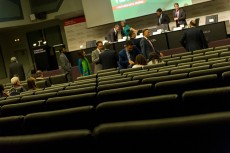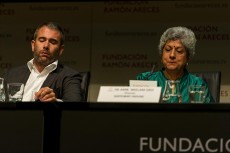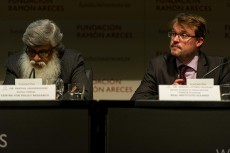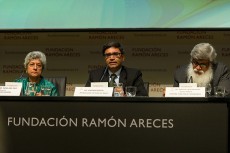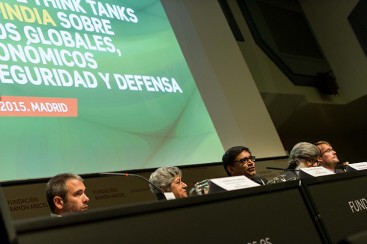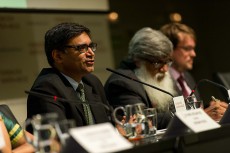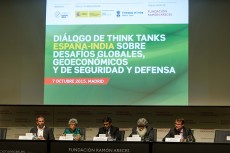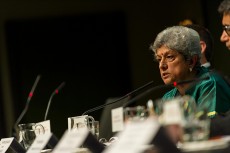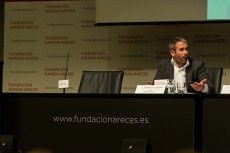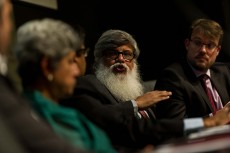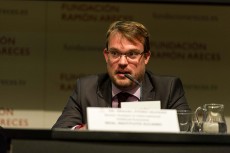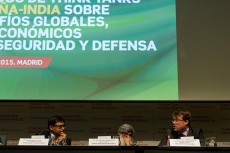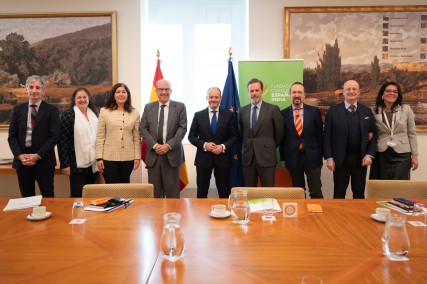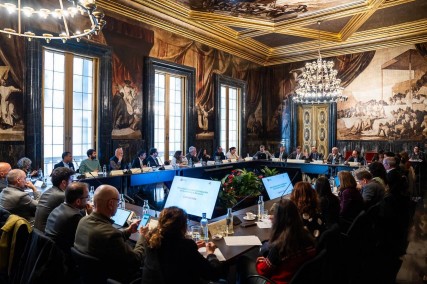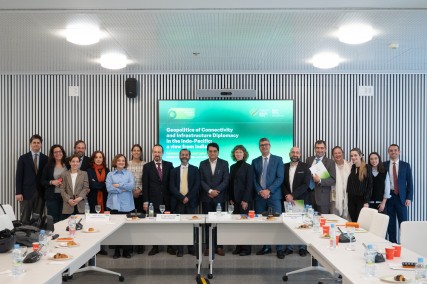The conclusions drawn at the Spain-India Dialogue on Global, Geoeconomic and Defence Challenges organised by the Spain India Council Foundation were extremely interesting. A large group of experts from the two countries gave a comprehensive, enriching overview of the state of bilateral relations in the areas addressed, and the exchange of ideas that took place is sure to be a turning point for all involved. The Dialogue was preceded by a meeting of think tank representatives from the two countries. This allowed the proposed topics to be addressed more thoroughly during the Dialogue, as intended by the Spain India Council Foundation.
The Dialogue was structured around three areas: Global, Geoeconomic and Defence Challenges. However, the contributions were largely focused on the latter: security and defence. The geoeconomics of Spain-India relations, an extremely current issue given the shift in economic power from the West to the East, also garnered significant attention. In his presentation, the Ambassador of India to Spain, Vikram Misri, mentioned the importance of geoeconomics as an area closely linked to geopolitics and how important it is for think tanks to join the debate around these topics to come up with solutions and new opportunities for cooperation.
"Within the global governance system, it is hard for some economies to accept the paradigm shift," said Neelam Deo, Director of Gateway House, who encouraged attendees to look closely at opportunities for cooperation in this new global scenario. Partha Mukhopadhyay, Senior Fellow at the Centre for Policy Research, said bilateral agreements must have an impact on people as well as companies.
Miguel Otero-Iglesias, Senior Analyst in International Political Economy at Elcano Royal Institute, emphasised the advantages offered by Spain to India as an influential partner and a member of the EU, especially since the euro is currently one of the strongest currencies in the world. Gonzalo de Cadenas, Principal Economist for Emerging Markets at BBVA Research, analysed the situation of the BRICS and advised India to focus its development on a talent-based model, in contrast with the approach used in China.
You can visit the participants’ profiles via this link.
Photo gallery: Opening session and ‘Global Affairs: Partnering in an uncertain world’ panel
Photo gallery: ‘Geoeconomics: Mapping the Changing Terrain of Geoeconomics’ panel
Photo gallery: ‘Defence and Security: Common Challenges and Shared Perspectives’ panel and closing session
You can check out the event’s agenda via this link.

